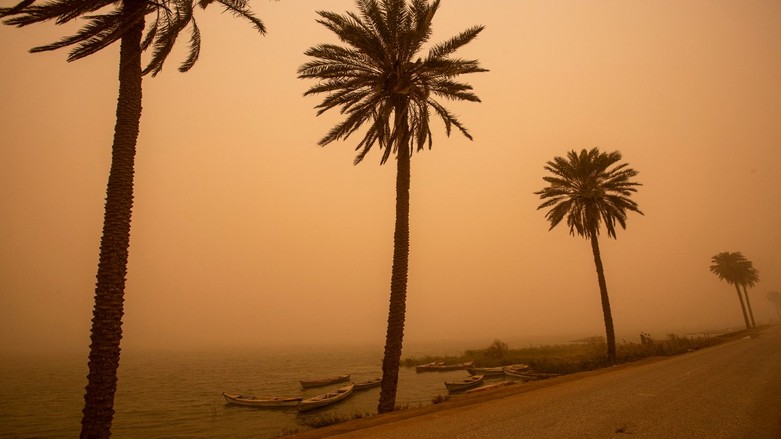Dust storms battering Iraq originated in regional countries: Environment Minister

ERBIL (Kurdistan 24) – The increasing number of dust storms that have recently battered Iraq originated in regional countries, according to the country's environment minister.
While climate change and droughts are invariably blamed for the increasing number of dust storms, most originate from regional countries, including Jordan, Syria's Deir al-Zor, and Saudi Arabia, Iraqi Minister of Environment Jassim Abdul Aziz al-Falahi told state Al Iraqiya TV on Monday.
He also said that water scarcity is one of the leading causes behind the country's increasing number of dust storms.
Since last month, Iraq has experienced at least nine intense dust storms that turned Iraqi skies a dark orange color and hospitalized nearly 10,000 people with breathing issues.
He said that Iraqi diplomats have ramped up efforts to address the looming climate threats with regional partners, especially the issues of desertification, water scarcity, and dust storms.
Foreign ministers of Iran, Iraq, and Syria have previously held phone calls to discuss these environmental issues.
While Iraq has faced dusty weather in the past, the frequency and intensity of these storms increased in recent years. The country has grounded flights and shut down public offices several times in April and May due to dust storms.
Iraq is ranked the fifth most vulnerable country to the adverse effects of climate change. Officials believe increased dust storms and other issues are a direct result.
The construction of dams on the Tigris and Euphrates rivers by Iran and Turkey has significantly reduced water flows vital to Iraq's food and water security.
Iraq expects, at best, to harvest 2.5 million tons of wheat this year due to the lack of water it needs to irrigate its crops, AP recently reported.
